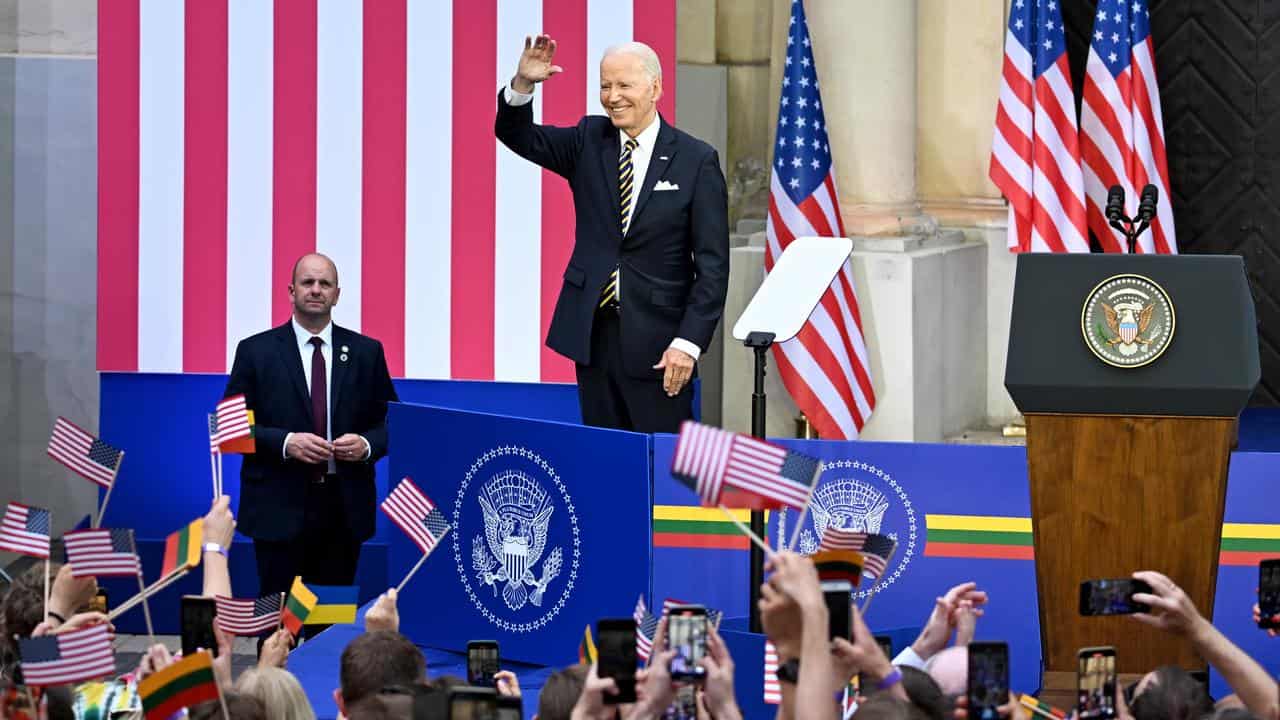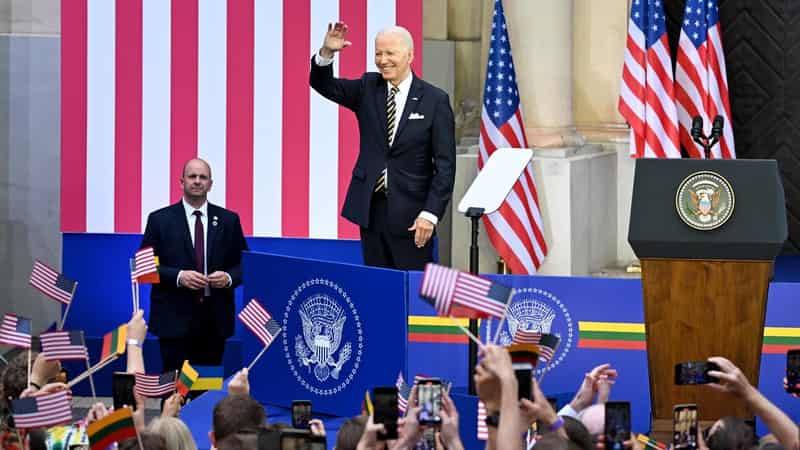
US President Joe Biden has concluded the NATO summit denouncing Russian President Vladimir Putin as "craven" and promising Ukrainian President Volodymyr Zelenskiy full support even without membership in the military alliance.
Capping the two-day meeting of NATO leaders in Lithuania, on Russia's doorstep, Biden praised the people of the formerly Soviet-occupied country while heralding the addition of Finland to the alliance and the prospective admission of neighbour Sweden.
Biden, who has made unifying NATO countries a foreign policy priority, said Putin had badly underestimated their resolve.
"NATO is stronger, more energised and yes, more united than ever in its history. Indeed, more vital to our shared future. It didn't happen by accident. It wasn't inevitable," Biden said to thousands of people at Vilnius University, many of them cheering him on with Lithuanian and American flags.
"When Putin, and his craven lust for land and power, unleashed his brutal war on Ukraine, he was betting NATO would break apart... He thought our unity would shatter at the first testing. He thought democratic leaders would be weak. But he thought wrong."
Biden's speech aimed to rally allies and showcase his role on the world stage ahead of a 2024 re-election campaign focused on healing divisions at home and abroad. Sweden's entry to NATO comes as Turkey, which once opposed the admission, is due to get F-16 fighter jets from the United States.
Before meeting Biden and other leaders, Zelenskiy criticised NATO for not offering a clear pathway for Ukraine to join the alliance, calling it "absurd." Biden, who opposes Ukraine membership at this time, told reporters before leaving Vilnius that Zelenskiy's concerns were assuaged after G7 leaders made new security pledges.
"One thing Zelenskiy understands now is that whether or not he's in NATO now is not relevant" - as long as he has the new commitments that have been made at the summit, Biden told reporters. "He's not concerned about that now."
Despite the public goodwill, US officials privately struggled with their counterparts in Vilnius to forge a consensus on where the war was headed, how to bring it to a close, and what assurances to give Ukraine about its future in the Atlantic military alliance, according to four NATO diplomats involved in those conversations.
Ukraine has pushed for NATO membership while fighting a Russian invasion unleashed in February 2022. NATO has avoided extending any firm commitments to Ukraine, worried it would risk taking it closer to a full-on war with Russia.
NATO allies agreed that Ukraine would join eventually, when "allies agree and conditions are met," but offered no details on when, if ever, Kyiv would meet such conditions.
After his speech in Vilnius, Biden met with opposition leader Sviatlana Tsikhanouskaya of Belarus to "underscore the continued commitment of the United States to defend and advance human rights, including freedom of expression, and free and fair elections in Belarus," the White House said.
Belarus President Aleksandr Lukashenko is one of Putin's biggest allies.
"The idea that the United States could prosper without a secure Europe is not reasonable," Biden said, adding that the US and its allies wanted an end to war on just terms.
"We will not waver. We will not waver. I mean that. Our commitment to Ukraine will not weaken. We will stand for liberty and freedom today, tomorrow and for as long as it takes," Biden said in the university speech.
In contrast with former President Donald Trump, Biden made Washington, by far the largest contributor to NATO, a driving force for strengthening the group.









